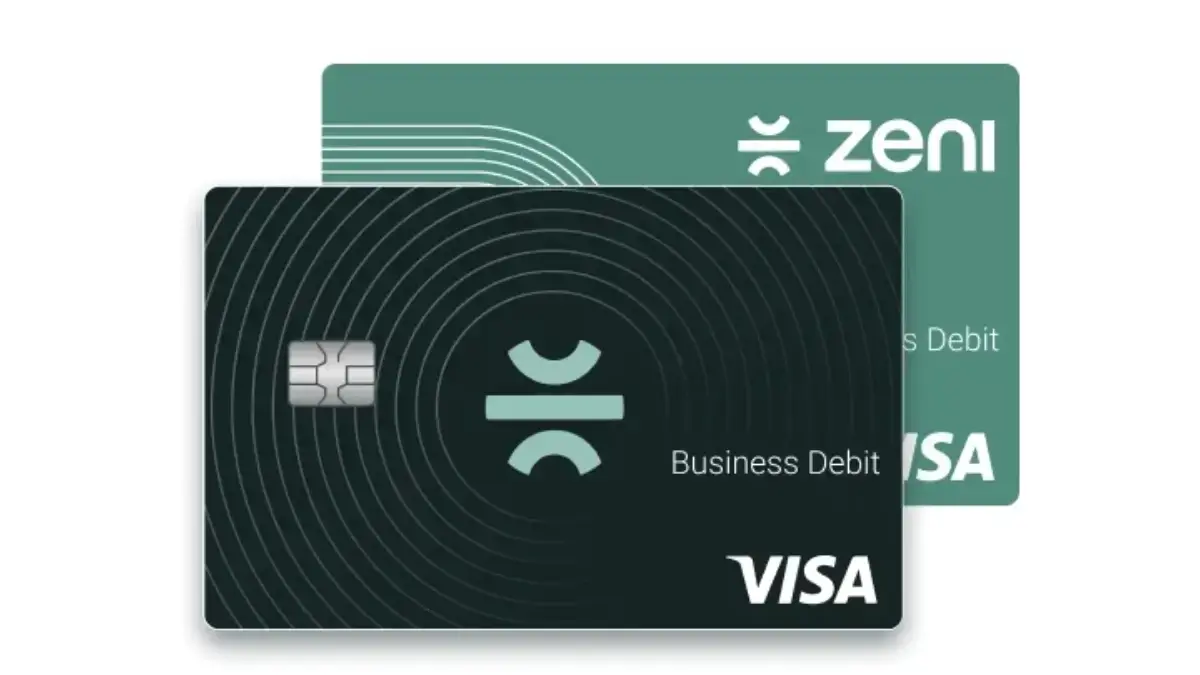
Kudos has partnered with CardRatings and Red Ventures for our coverage of credit card products. Kudos, CardRatings, and Red Ventures may receive a commission from card issuers. Kudos may receive commission from card issuers. Some of the card offers that appear on Kudos are from advertisers and may impact how and where card products appear on the site. Kudos tries to include as many card companies and offers as we are aware of, including offers from issuers that don't pay us, but we may not cover all card companies or all available card offers. You don't have to use our links, but we're grateful when you do!
Carrying a Credit Card Balance: Does It Help or Hurt in 2025?
July 1, 2025


There’s a persistent myth in personal finance: “Carrying a small balance on your credit card helps your credit score.” Many people believe that leaving a bit of unpaid balance (instead of paying off in full) shows responsible use and can boost your credit. But is this true in 2025? Should you carry a balance or is it better to pay your cards off completely each month?
In this article, we’ll dive into how carrying a credit card balance actually affects your credit, the costs associated with it, and the best practices for managing your balances. Spoiler alert: carrying a balance usually hurts more than it helps, both in terms of credit health and your wallet. We’ll explain why, and how tools like Kudos can help you avoid unnecessary balances while maximizing the benefits of your cards.
What Does “Carrying a Balance” Mean?
Simply put, carrying a balance means not paying your credit card bill in full by the due date, so that a portion of your charges remains unpaid and rolls over to the next billing cycle. For example, if you charged $1,000 last month and only paid $800 by the due date, you’d carry a $200 balance forward. The credit card issuer will then charge you interest on that $200 (and on any new purchases, unless you have a 0% APR promotion).
Carrying a balance is different from the term “balance transfer” or “outstanding balance” – it specifically implies that you’re intentionally leaving a part of the debt unpaid for now. Many people do this because they cannot afford to pay in full, or sometimes due to the myth we’re discussing.
Does Carrying a Balance Improve Your Credit Score?
In a word: No. Carrying a balance does not improve your credit score. What credit bureaus and scoring models (like FICO and VantageScore) care about is that you use your credit card and repay it on time. Whether you repay in full or carry a balance doesn’t directly boost your score; in fact, carrying a balance can indirectly hurt your score by increasing your credit utilization.
Key points:
- Payment History (35% of FICO score): This is the biggest factor. As long as you make at least the minimum payment by the due date, you get a positive mark here. Paying in full versus minimum doesn’t change the fact that it’s an on-time payment. Carrying a balance doesn’t add any extra “brownie points” – you don’t get extra credit for paying interest.
- Credit Utilization (30% of FICO score): This looks at how much of your available credit you’re using. If you don’t pay in full, you’ll have a higher balance reported to the credit bureau on your statement closing date.
- Length of Credit History, New Credit, Credit Mix: These factors aren’t directly related to whether you carry a balance month to month.
The origin of the myth might be confusion with the idea that you should use your credit card regularly to build credit. It’s true that dormant cards (no activity) won’t build credit history. Using your card each month and then paying in full is ideal. The credit scoring system only needs to see that you used credit and handled it responsibly. You could charge a small amount, pay it off, and repeat – that builds credit just fine, with no balance carried over.
In 2025, both older and newer scoring models continue to favor paying on time and keeping balances low. No model rewards you for interest paid or for intentionally leaving a balance.
The Real Cost of Carrying a Balance – Interest
If the credit score reasoning isn’t enough to convince you, consider the financial cost. When you carry a balance, you incur interest charges on that amount. Credit card interest rates in 2025 typically range from around 15% APR on the low end to 25% or more on the high end, depending on the card and your creditworthiness. This is high interest compared to other types of loans.
For instance, if you carry a $1,000 balance at 20% APR, in a month you’ll accrue roughly $16.67 in interest (since 20% per year is about 1.67% per month). That might not sound huge, but if you only pay the minimum, you’ll keep getting charged interest on the remaining balance. Over a year, carrying that $1,000 could cost about $200 in interest. And many people carry far larger balances.
Importantly, if you pay your statement balance in full each cycle, you typically get a grace period on new purchases – meaning you won’t be charged interest at all on new purchases. However, once you carry a balance, new purchases often start accruing interest immediately (depending on your card’s terms). So carrying a balance not only racks up charges on that amount, but makes every new swipe more expensive, too.
In short, carrying a balance means giving money to the bank in the form of interest, when you could avoid that by paying in full. The only time carrying a balance doesn’t cost you is if you’re in a 0% APR promotional period – and even then, you’d want to pay it off before that promo expires.
Why the Myth Persists
Despite the evidence, why do many people still think they should carry a small balance? A few reasons:
- Misinterpretation of Advice: Some financial advice says “use your cards to build credit.” People mistakenly think “use” means “don’t pay off.” In reality, use just means put a charge on it; you can pay it off immediately and still have “used” it.
- Seeing a Balance on Credit Report: When you check your credit report, you might see each account showing a balance, even if you pay in full. This is because credit reports typically show the balance as of the last statement. So someone might pay in full on due date, but the report shows they had, say, $300 balance (which was the statement amount).
- Anecdotes: People often rely on personal anecdotes. Someone might say “I carried a balance and my score went up!” Perhaps their score went up because their length of history improved or some inquiry aged off – it wasn’t the interest they paid that did it. However, they attribute it to carrying a balance.
In 2025, financial literacy is improving, but myths die hard, especially ones passed around by well-meaning friends or out-of-date articles. It’s always good to double-check advice against current reputable sources or expert consensus.
Best Practice: Pay in Full, On Time
The consensus advice from virtually all financial experts: Pay your credit card balance in full every month, by the due date. This habit accomplishes several things:
- You avoid all interest costs, essentially getting the credit card’s benefits (convenience, rewards, fraud protection) for free.
- You keep your credit utilization low (since after payment your balance goes to $0 or close to it).
- You build a record of on-time payments, which is great for your credit history.
- You maintain control of your debt, not letting it snowball.
If you are currently unable to pay in full, that’s a sign you may be living a bit beyond your means or have hit an unexpected financial snag. It should be a priority to make a plan to eliminate that debt (perhaps by cutting expenses, increasing income, or doing a balance transfer to a 0% APR card or consolidation loan if that makes sense). Carrying balances long-term is expensive.
One useful approach if you’re trying to avoid carrying balances is to use Kudos or similar budgeting tools. For example, Kudos can show you in real time how much you’ve spent on each of your cards during the month. You can then ensure you don’t spend more on the card than you can pay off.
Some users treat their credit card like a debit card by checking their app frequently and even making a couple of payments throughout the month to keep the balance low. There’s nothing wrong with paying your card off multiple times a month if it helps you stay on track (issuers don’t mind early payments).
Are There Any Times When Carrying a Balance Makes Sense?
In general, it’s best to avoid it. But there are a couple of scenarios where you might knowingly carry a balance:
- 0% APR Promotions: If you have a card offering 0% interest for a period (say 12-18 months) on purchases or a balance transfer, you could carry a balance during that promo interest-free. This can be a strategic way to finance a big purchase or consolidate debt as long as you have a plan to pay it off before the interest kicks in.
- Emergency Situations: If an emergency expense hits and the only way to cover it is by putting it on a credit card and paying it off over a few months, you might have to carry a balance. In such cases, it’s not to help your credit score, but rather a necessity. If this happens, try to formulate a repayment plan to eliminate that balance as soon as possible.
Even in these cases, the goal should be to stop carrying a balance as soon as you’re able. The impact on your credit score is not positive — but understandable in emergencies — and the monetary cost in interest is something to minimize.
Busting the Myth
Carrying a credit card balance does not improve your credit score. The best practice for credit health and financial health is to pay off your cards every month. In 2025, credit scoring models are well-understood: they reward low utilization and on-time payments, not interest payments or lingering debt.
So feel free to pay in full with confidence that you’re doing the right thing. Your wallet will thank you for saving on interest, and your credit score will reflect your responsible behavior. If you ever need reassurance, just remember – banks might love it when you carry a balance (because they earn interest), but your credit score doesn’t give extra credit for making the bank richer!
Carrying a Credit Card Balance FAQ
Does carrying a balance on a credit card improve your credit score?
No, carrying a balance on your credit card does not improve your credit score. This is a common misconception. Credit scoring models care that you use your credit card (activity) and repay what you owe on time. Whether you pay the full balance or carry part of it to the next month has no positive effect on the score.
Will my credit score drop if I pay off my credit card in full?
Generally, paying off your credit card in full will not make your credit score drop. In many cases, it can help your score by reducing your credit utilization. There is a myth that having a $0 balance might hurt your score, but that’s not accurate. As long as you are using the card (even if you pay it to $0, the fact that you had a balance during the month that was reported on the statement means the card is active), you get credit for that usage. Some people like to let a small balance report each month just to show activity, but even then they pay it off by the due date – this is essentially the same as paying in full, just timing the payment after the statement closes.
How much credit card balance is it okay to carry month to month?
From a credit score perspective, it’s ideal to carry no balance at all (i.e., pay in full). If you do carry a balance, keeping it low relative to your credit limit is important. For credit scoring, the general guideline is to keep your credit utilization under 30%, and under 10% is even better. For example, if you have a $1,000 credit limit, carrying more than $300 (30%) is considered high utilization and could start to hurt your score. That said, from a financial standpoint, any balance you carry will accrue interest (unless you’re in a 0% APR period).

Supercharge Your Credit Cards
Experience smarter spending with Kudos and unlock more from your credit cards. Earn $20.00 when you sign up for Kudos with "GET20" and make an eligible Kudos Boost purchase.
Editorial Disclosure: Opinions expressed here are those of Kudos alone, not those of any bank, credit card issuer, hotel, airline, or other entity. This content has not been reviewed, approved or otherwise endorsed by any of the entities included within the post.





























.webp)
.webp)
.webp)
%20(1).webp)
.webp)
.webp)


.webp)